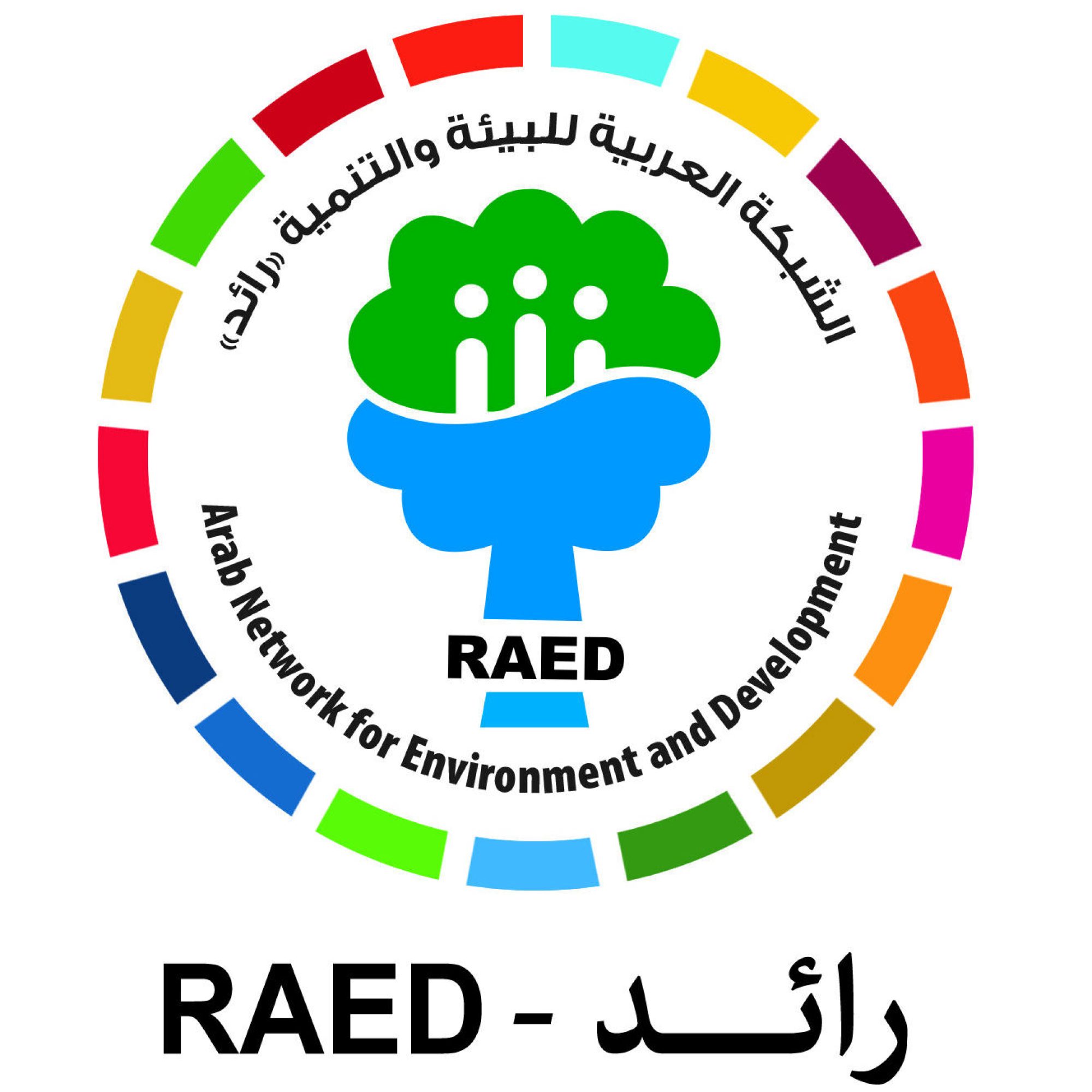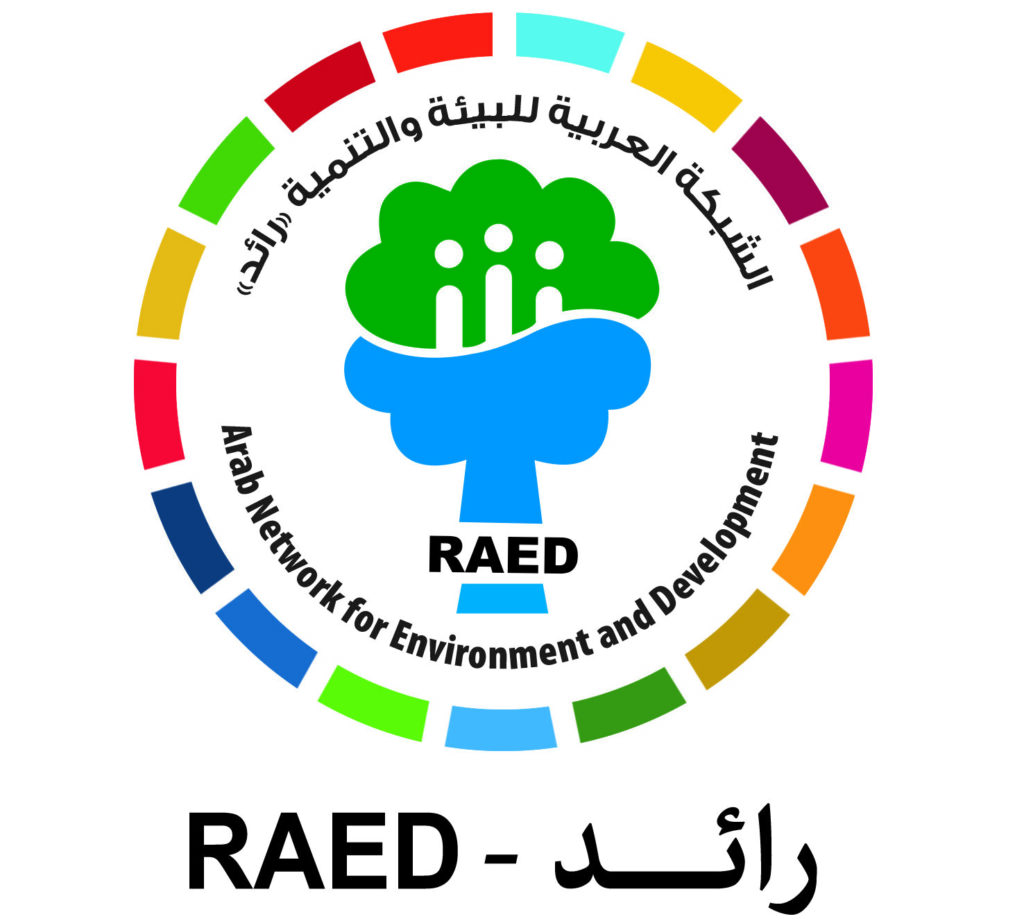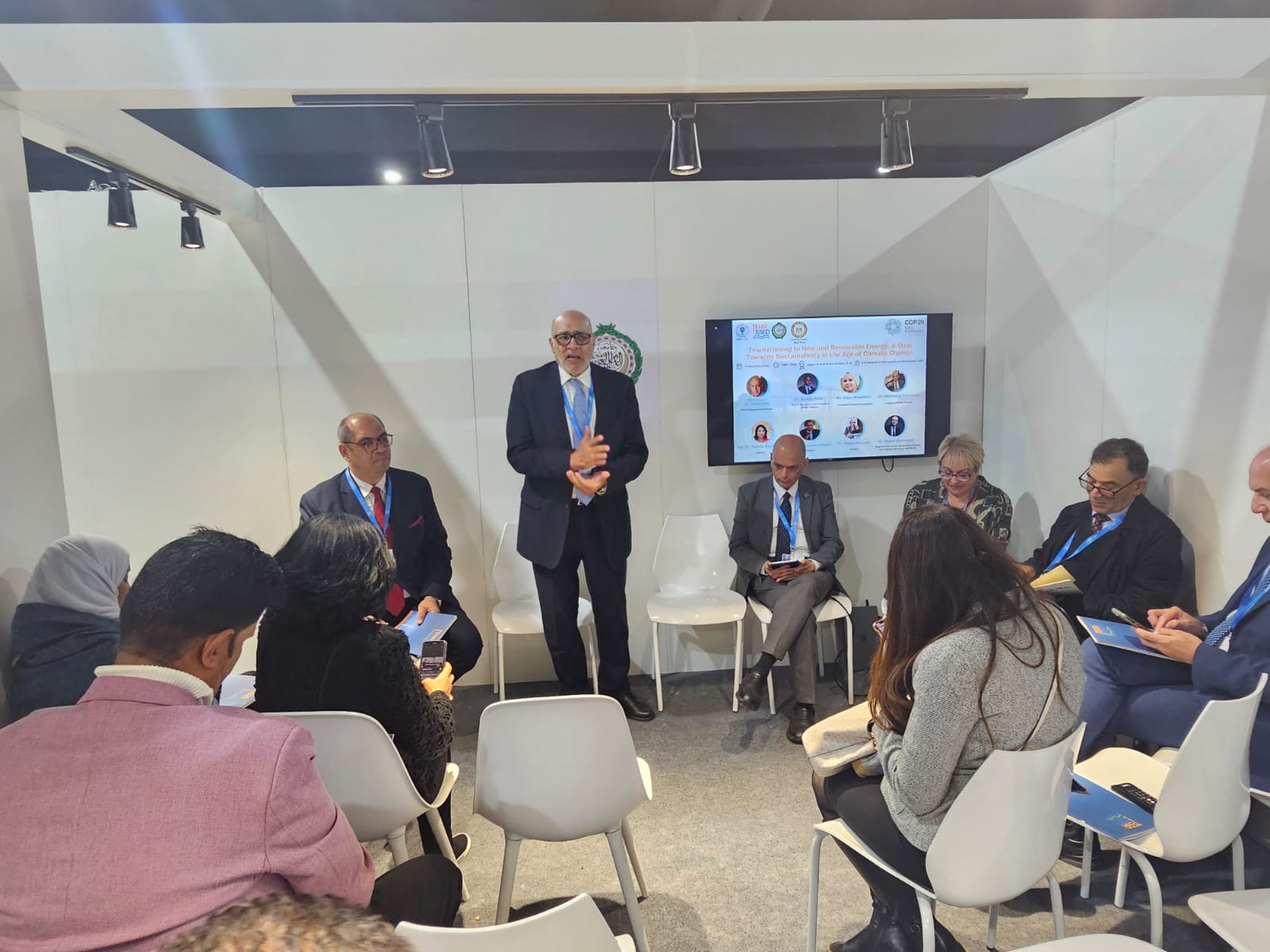RAED Network Highlights Arab Civil Society Efforts in Support of the TeraMed Initiative at COP 29
The Arab League pavilion at the 29th Conference of the Parties (COP 29) to the United Nations Framework Convention on Climate Change (UNFCCC), held in Baku, Azerbaijan, hosted a side event organized by the Arab Network for Environment and Development (RAED). Titled “Transitioning to New and Renewable Energy: A Step Towards Sustainability in the Age of Climate Change,” the event aimed to shed light on the challenges of transitioning to new and renewable energy sources and to discuss key solutions and alternatives for maximizing their benefits.
The meeting featured an overview of Arab civil society efforts to support and promote the TeraMed Initiative, which aims to generate 1 terawatt of clean energy in the Mediterranean region. Dr. Emad Adly, RAED General Coordinator, opened the discussions by emphasizing the global shift toward diversifying energy sources as a critical strategy adopted by many countries to reduce reliance on fossil fuels, the primary driver of climate change responsible for over 75% of global greenhouse gas emissions.
Dr. Adly highlighted the collaborative role of civil society organizations and government sectors in advancing renewable energy as a principal pathway to achieving sustainability, particularly amid the escalating impacts of climate change. He explained that the TeraMed Initiative aims to double renewable energy capacity in the Mediterranean region to 1 terawatt by 2030 through collective regional efforts, leveraging technological advancements and renewable resources to meet ambitious energy goals.
Dr. Ali Abu Sena, CEO of the Egyptian Environmental Affairs Agency, underscored that TeraMed, officially launched during the Cairo Sustainable Energy Week in early October, aligns with global efforts to combat climate change while delivering significant environmental, economic and social benefits to participating countries.
He noted that diversifying energy sources presents substantial challenges, as transitioning to renewable energy requires specific environmental conditions and substantial financial investments in advanced technologies, particularly in developing countries that often rely on importing these technologies. Abu Sena stressed the need for a fair transition to renewable energy, ensuring labor market stability and avoiding economic disruptions that could lead to social challenges.
Dr. Mahmoud Fathallah, Director of the Environment and Meteorology Department and head of the technical secretariat of the Council of Arab Ministers Responsible for the Environment at the League of Arab States, highlighted the pressure on natural resources due to population growth in many Arab countries. He warned that some communities might resort to unsustainable resource use to meet rising demand, despite the environmental consequences. He emphasized the pivotal role of civil society in driving a fair transition to new and renewable energy through various initiatives and projects that contribute to achieving the desired goals.
The event was attended by representatives from several Arab countries, including Ms Hajar Khamlichi from the European Climate Foundation; Dr. Maged Mahmoud from the Regional Center for Renewable Energy and Energy Efficiency (RCREEE); H.E. Dr. Fatima Zohra Zourwati, former Minister of Environment and Renewable Energies in Algeria; Prof. Mohammed Ftouhi, professor at Mohammed V University in Rabat and Assistant General Coordinator of RAED in the Maghreb region; and Dr. Najwa Bourawi, RAED Coordinator in Tunisia.



